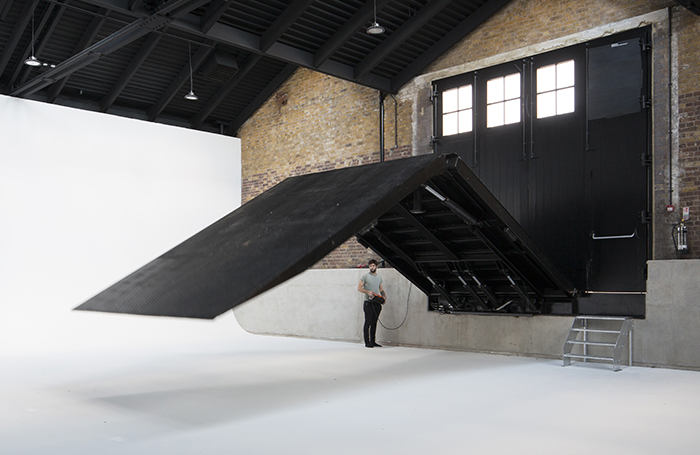Established in 2014, Ackroyd Lowrie is one of East London’s fastest growing practices, attracting attention for award-winning schemes, which put people at the heart of design, and nature at the heart of cities. Co-founded by Oliver Lowrie and Jon Ackroyd, the aim was to a build a company which designed the cities of the future.
Lowrie and Ackroyd are vocal advocates of radical retrofit, low energy design and making the architecture profession more inclusive. Drawing upon their shared background as sustainability specialists, Ackroyd and Lowrie lead the practice to apply low energy design principles at city scale. In doing so, Ackroyd Lowrie has developed a strong reputation for retrofit, urban regeneration and neighbourhood master-planning, with an impressive portfolio of residential, commercial and educational developments across the UK and internationally.
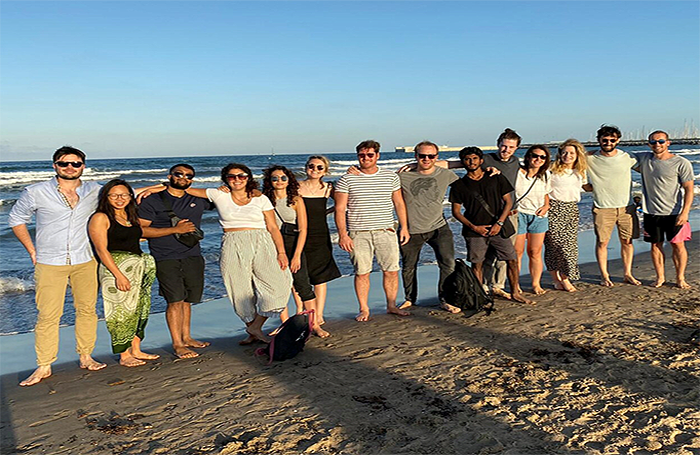
What do you think is the most important issue for architects to focus on right now, and what are you doing as a practice to tackle it?
Architecture has the capacity to impact everyone, yet the profession is not as open or inclusive as it needs to be. In our experience, there are two significant barriers:
The first is that the UK’s architectural education system is very long, expensive, and does not necessarily equip candidates with useful business skills.
The second is a matter of visibility. Architecture is not taught in schools. We find when we go into local schools in Tower Hamlets and Hackney, it’s not seen as an obvious career route for young people. To design the cities of the future, we need people from all walks of life. Diversity and representation is vital. Young people need to know what careers are viable; they can’t be what they can’t see.
Inspired by the academy Sir Alex Ferguson built at Manchester United, we launched our own initiative, the ‘AL (Ackroyd Lowrie) Academy’, with two strands.
The first tackles the challenges of employing students out of university. Via an online portal and skills matrix, we can fast-track onboarding and encourage upskilling, enabling employees to understand the skills required for their current role as well as career progression.
The second is an outreach programme that allows us to work with schools and charities from East London boroughs to break down barriers and introduce architecture as a viable career.
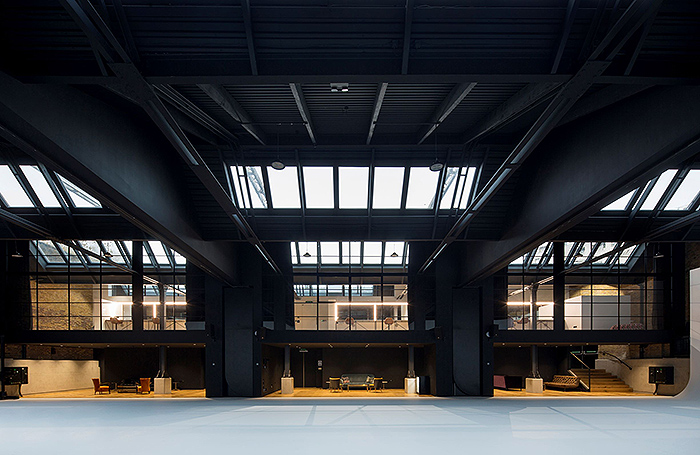
How do you think we can make architecture more accessible to people of all backgrounds?
Our AL Academy outreach programme was designed specifically to address this and has been applauded as a model for how businesses can invest in future generations.
Working with neighbouring schools and charities, including the Jason Roberts Foundation, Sounds Like Chaos Youth Theatre, Social Mobility Foundation, New City College and London Southbank University (LSBU), we have devised a full education programme. This starts with co-design workshops in schools for pupils aged 14 to 16, and can lead a candidate through T-level qualification, then onto part one and two apprenticeship placements.
We are very excited that we can offer a 16-year-old a route to full qualification by the age of 25, without having to pay for higher education. Moreover, they will be paid throughout and therefore, compared to a London-based candidate taking their full maintenance grant, they come out over £100,000 better off by our estimates.
The aim of the co-design workshops is to get potential candidates excited about how architecture can impact the environment that we inhabit. Introducing young people to what a career in architecture involves and enables a greater understanding of the different routes into the profession.
Placements are then given to those who wish to learn more and study design-related subjects. They will be supported throughout their T Levels, and either a full-time architectural course or apprenticeship degrees offered by AL and LSBU.
Our first candidate entered the Academy in July 2022, and places are fully booked until the end of 2023. The positive feedback we’ve had has been inspiring. Our college contacts have confirmed students who have completed sessions, now produce more sophisticated coursework. We are thrilled to be making such a difference to the lives of young people.
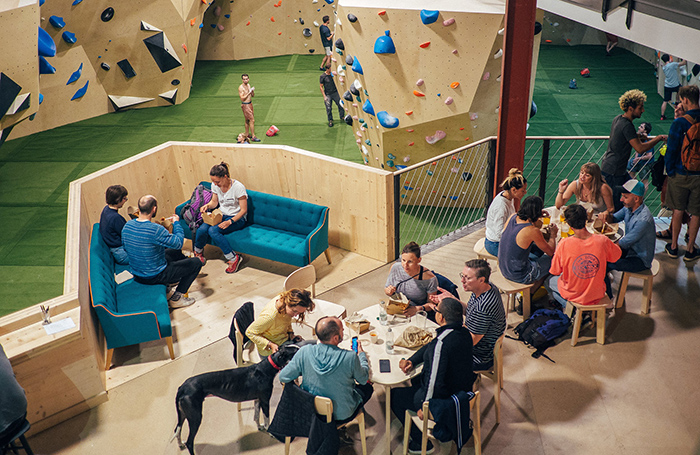
What is your advice to future architecture generations?
Remember that the traditional educational route is not the only option to become an architect. There is much discussion regarding educational reform at the moment and this is needed. High educational fees followed by low level entry salaries are deterring talented people; this needs reversing. Apprenticeships and other ‘earn while you learn’ placements are equally, if not more, effective for both individuals and businesses.
For those considering an architecture career, get involved as early as you can. Find studios near you, ask about work experience placements like our Academy programme, and research apprenticeship opportunities via RIBA’s website.
What do you think architecture practices need most support with now?
The scale of the climate emergency is so big it is an over simplification to look at one building at a time. Our industry has taken positive steps with the Architects Declare movement and campaigns like the AJ’s RetroFirst, but we need more commitment from the government that currently appears to be putting the future of the planet at stake in its knee-jerk attempts to build support for an anti-green movement.
Most architectural practices are suffering from the consequences of the global and national economic pressures, and we need to work together across the wider sector to prevent a ‘race to the bottom’ on fees that seems endemic in our profession.
Emerging AI technologies could be transformative within the sector. But these could also further diminish the role of the architect, as more of our roles could be done by developers and house builders using tech tools. We believe the industry should be coordinating its efforts to create tools, however, this requires investment. The problem is that most architectural practices do not have access to the level of capital required to develop these tools, therefore we believe there is value in RIBA exploring a public/private partnership to raise capital for this purpose.
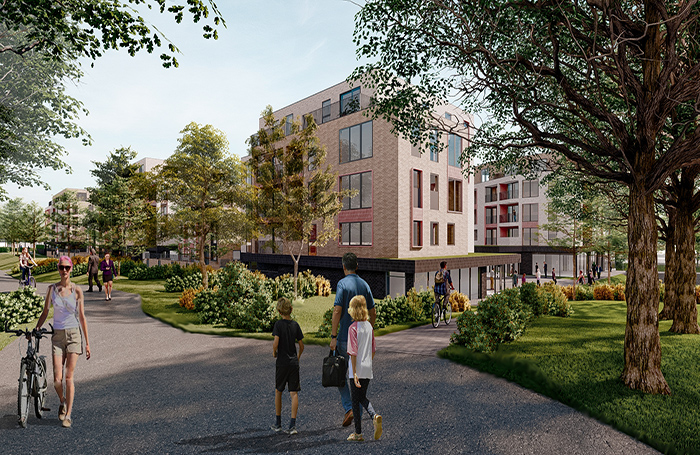
What do you think is the role of communities in creating sustainable architecture?
The role of communities is absolutely vital. To shape sustainable future cities, we not only need the views and opinions of those who grew up and live in inner city environments, but a greater cross-sector collaboration too. It is crucial there is a dialogue between those who want to implement change and those who can affect it.
To enable this, we created an event series, ‘The Breakfast Club Briefings’ which invites politicians, planners, developers, consultants and senior individuals from councils and other bodies, to meet regularly for open discourse and to form consensus on policy. Our philosophy is very much one of action; we need to be the change we want to see and try to reach out and influence key decision-makers.
This is one platform we use to convert conversation into action. The other is our podcast, the Urban Forecast. This invites similar guests as well as economists, urban designers and other industry leaders to debate, discuss and share insight on how we can collectively design more sustainably, whilst creating green buildings and cityscapes that are inclusive for all.
What’s the most exciting project you’ve got coming up and why?
There’s too many to mention. We have just submitted plans for the third parcel of land in our masterplan for the redevelopment of Wych Elm, Harlow. In total, this will create over 200 homes, commercial units for new businesses and an impressive public realm which reconnects the town centre.
Co-Living is a sector we are really excited about too, and it’s growing rapidly. We are on site with a development in Harrow, opening at the end of the year and in conjunction with Savills, we are launching our own research paper on this sector later this year.
In London, we are re-purposing a former a Magistrates Court into an exciting new mixed-use scheme, that exemplifies our commitment to radical retrofit and we are on site with an amazing retrofit project for a Junior School in Kensington.
